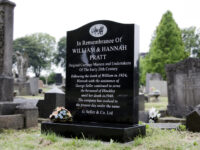Remembrance Day is a memorial day that is observed in Commonwealth member states throughout the world. It is a day of remembrance that has taken place since the end of the First World War to remember the members of their armed forces, emergency services and civilians who have died in the line of duty.
Remembrance honours those who serve to defend our freedoms and way of life. We will remember them.
- We remember the sacrifice of the Armed Forces community from Britain and the Commonwealth.
- We pay tribute to the special contribution of families and of the emergency services.
- We acknowledge innocent civilians who have lost their lives in conflict and acts of terrorism.
Remembrance does not glorify war and its symbol, the red poppy, is a sign of both Remembrance and hope for a peaceful future. Wearing a poppy is is never compulsory but is greatly appreciated by those who it is intended to support.
When and how you choose to wear a poppy is a reflection of your individual experiences and personal memories.
Remembrance unites people of all faiths, cultures, and backgrounds but it is also deeply personal. It could mean wearing a poppy in November, before Remembrance Sunday. It could mean joining with others in your community on a commemorative anniversary. Or it could mean taking a moment on your own to pause and reflect.
Everyone is free to remember in their own way, or to choose not to remember at all.
In every act of remembrance, we honour the memory of the fallen and pledge to care for the living.
It is also known as Armistice Day and takes place on 11 November. It marks the day World War One ended, at 11am on the 11th day of the 11th month, in 1918. A two-minute silence is held at 11 am as an act of remembrance.
#WeWillRememberThem
















































